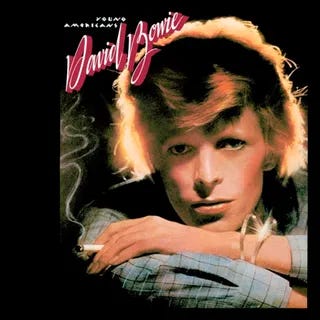David Bowie’s Young Americans Turns 50: A Soulful Reinvention
Celebrating Five Decades of Bowie’s Bold Foray into Philly Soul
Welcome to Vintage Cafe—a thoughtfully curated space for lovers of music, film, books, art, travel, and coffee. Each edition offers in-depth reviews, insightful explorations, and hidden gems you won’t find anywhere else. If you enjoy this content and want to support my work and independent writing, the best way is by taking a paid subscription for just $6 a month. Your support unlocks exclusive content and keeps this space thriving.
David Bowie’s Young Americans is a daring reinvention, a sharp departure from the glitter and theatricality that defined his earlier works. Released in 1975, this album marked Bowie’s foray into soul music, a move as bold as it was unexpected. Stripping away much of the glam rock artifice, Bowie embraced the smooth rhythms and emotional depth of Philly Soul, producing a record that felt both exploratory and personal. It was a pivotal moment in his career, a bridge between the Ziggy Stardust era and the sleek experimentation of albums yet to come.
Recorded during Bowie’s tumultuous mid-70s period, Young Americans emerged from a time of intense creative output and personal turmoil. The singer’s infamous struggles with cocaine were well underway, and the American tour supporting Diamond Dogs had brought him face-to-face with a culture and musical style that reignited his curiosity. Soul and R&B offered Bowie a new canvas, one he approached with both reverence and a desire to innovate. To bring this vision to life, Bowie assembled a remarkable team of collaborators, including guitarist Carlos Alomar, saxophonist David Sanborn, and the then-unknown Luther Vandross, who contributed not just vocals but also vital ideas that helped shape the album.
Keep reading with a 7-day free trial
Subscribe to Vintage Cafe to keep reading this post and get 7 days of free access to the full post archives.






